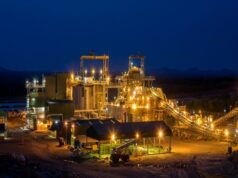The government of Mali, in its desire to ensure that all Malians benefit from the richness of the subsoil, has adopted and promulgated a new mining code that takes into account aspects omitted from the previous code, and adopted a law on local content that offers advantages to Malian companies or companies governed by Malian law. What does the law on local content say?
This is a set of provisions and measures that oblige mining companies to give priority to nationals, local communities, national companies and locally produced materials in carrying out their activities. The law relates to the exploration, research, development, exploitation and processing of mining resources, as well as the development, management, transport, storage, distribution and marketing of mining products.
For Dr. Ahamadou Mohamed Maiga, the law was adopted with the aim of boosting the development of local Malian companies and increasing the employability of Malians through the mining sector. “It reinforces a certain number of obligations already set out in the 2019 mining code, while providing for administrative and criminal penalties in the event of non-compliance with these obligations”, says Dr. Ahamadou Mohamed Maiga.
The new law on local content requires all mining operators to have a local content plan describing their activities and the goods, services and skills needed to carry them out. The plan must be drawn up annually, and must include appendices containing information on local participation in the capital of foreign companies, the promotion of Malian companies, employment and training, the promotion and use of local goods and services, the transfer of technology and know-how, the promotion of research and development, and the capping of foreign wage costs.
As a reminder, the law on local content considers a local company to be “a person or group of persons with legal personality under Malian law whose share capital is owned by at least 51% natural persons of Malian nationality or legal persons under Malian law and whose beneficial owner is Malian. Its registered office is established on the territory of the Republic of Mali, with the wage costs of its Malian workforce representing at least 50% of total wage costs”.
Tiba Kassamse OUEDRAOGO
Mines Actu Burkina










